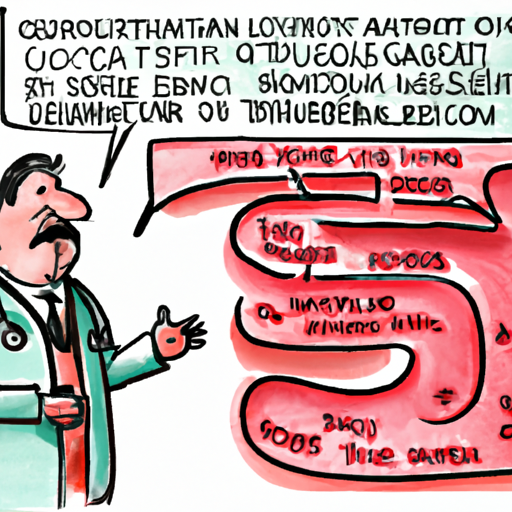As an ardent pet parent, nothing is more alarming than seeing our furry friend unwell. Among the various maladies that can affect our four-legged companions, gastritis is one that is quite common. It may sound formidable, but understanding what it is, its causes, symptoms, and treatment can help you ensure that your pet gets the right care at the right time.
Table of Contents
- Understanding Gastritis
- Causes of Gastritis
- Recognizing the Symptoms
- Diagnosing Gastritis
- Treatment Options
- Prevention and Care
- Frequently Asked Questions
Key Takeaways
- Gastritis is inflammation of the stomach lining that can lead to discomfort and digestive problems in dogs.
- Common causes include dietary indiscretion, ingestion of toxins, or underlying health issues.
- Symptoms include vomiting, decreased appetite, and lethargy.
- A vet can diagnose gastritis through physical examination, blood tests, and imaging.
- Treatment options vary depending on the cause, and can include dietary changes, medication, or in severe cases, hospitalization.
- Regular vet visits, a balanced diet, and careful monitoring of what your dog eats can help in preventing gastritis.
Understanding Gastritis
Gastritis is an inflammation or irritation of the stomach lining. It can occur suddenly (acute gastritis) or may persist over a longer period (chronic gastritis). While acute gastritis is usually due to something your dog ate, chronic gastritis might be a sign of a more serious underlying condition.
Causes of Gastritis
Dogs are known for their curious nature and dietary indiscretion, which often leads to gastritis. Here are some common causes:
1. Eating spoiled food or foreign objects
2. Ingestion of toxic substances such as chemicals, plants, or certain human foods like chocolate or onions
3. Adverse reaction to certain medications or anesthetics
4. Underlying health conditions such as kidney disease or pancreatitis
Recognizing the Symptoms
Spotting the signs of gastritis early can help in prompt treatment and recovery. Look out for the following symptoms:
* Vomiting, often with foam or yellowish bile
* Decreased appetite or complete loss of appetite
* Lethargy or decreased energy levels
* Abdominal pain or bloating
* Dehydration
* Blood in the vomit or stool
Diagnosing Gastritis
Diagnosing gastritis involves a thorough physical examination of your dog, complete medical history, and diagnostic tests. These can include blood tests, urinalysis, x-rays, ultrasound, and in some cases, an endoscopy to take a closer look at the stomach lining.
Treatment Options
The treatment for gastritis varies depending on the underlying cause. In mild cases, your vet might recommend fasting for 24 hours to rest the stomach, followed by a bland diet. Other treatment options include medications to reduce stomach acid, control vomiting, and manage pain. In severe cases, where the dog has ingested toxins or foreign objects, hospitalization may be required.
Prevention and Care
Preventing gastritis involves regular vet visits, a balanced diet, and careful monitoring of what your dog consumes. Training them to avoid garbage and unsafe items, keeping toxic substances out of their reach, and providing them with dog-friendly toys can go a long way in preventing dietary indiscretion.
Regular visits to the vet can also ensure early detection and treatment of underlying health issues. Also, consider reading more on dog health and wellness to stay informed and prepared.
Frequently Asked Questions
-
Can gastritis in dogs be fatal?
While gastritis can cause discomfort and illness, it is usually not fatal if treated promptly. However, untreated gastritis can lead to severe dehydration and other complications which can be life-threatening. -
How long does it take for a dog to recover from gastritis?
With proper treatment, dogs with acute gastritis often start showing improvement within 24-48 hours. However, chronic gastritis may require long-term dietary management and medication. -
What should I feed my dog with gastritis?
A bland diet consisting of easily digestible foods like boiled chicken and rice is often recommended. However, the diet may vary based on the dog’s specific needs and underlying causes. -
Can I prevent my dog from getting gastritis?
While you can’t completely prevent gastritis, you can significantly reduce the risk by monitoring your dog’s diet, regular vet check-ups, and ensuring they don’t ingest inappropriate items.
Remember, as a responsible pet parent, your dog’s health is in your hands. Stay vigilant, stay informed, and ensure they lead a happy, healthy life. For more on dog health, you can also check out articles on common dog diseases and dog nutrition facts.



